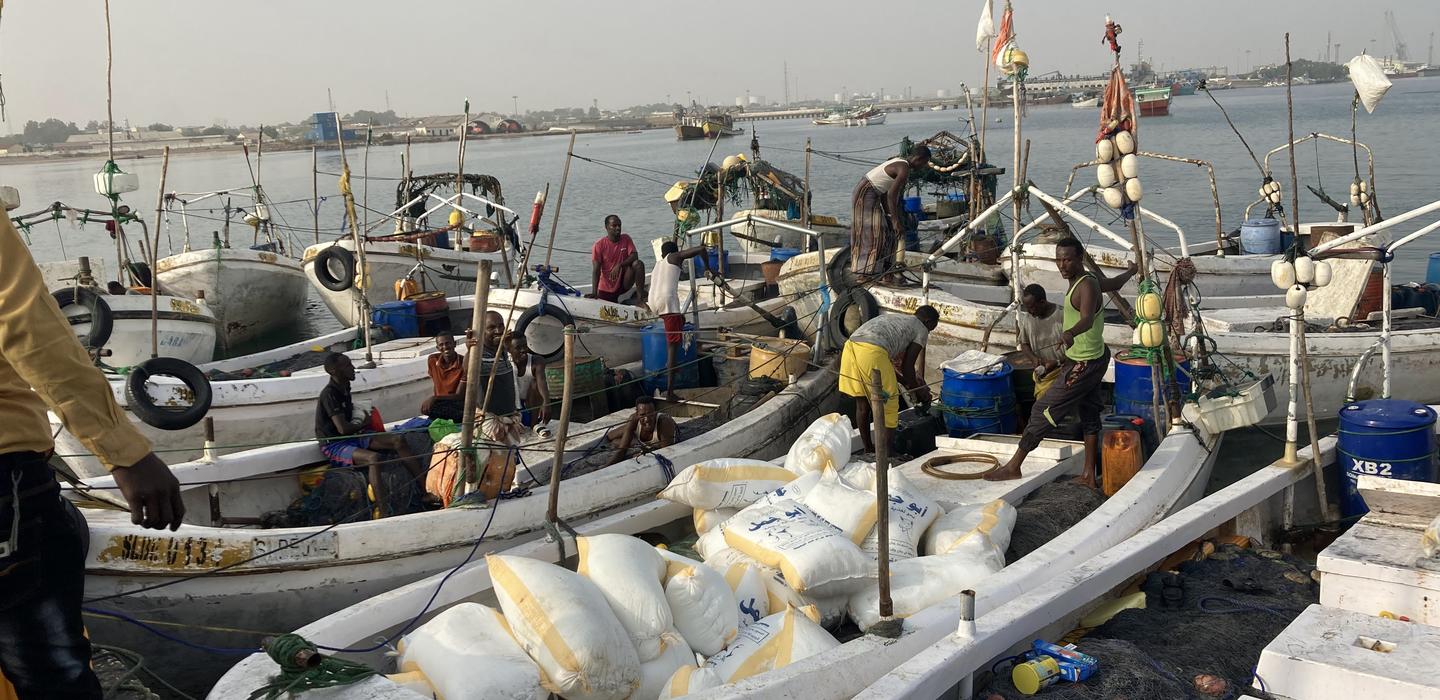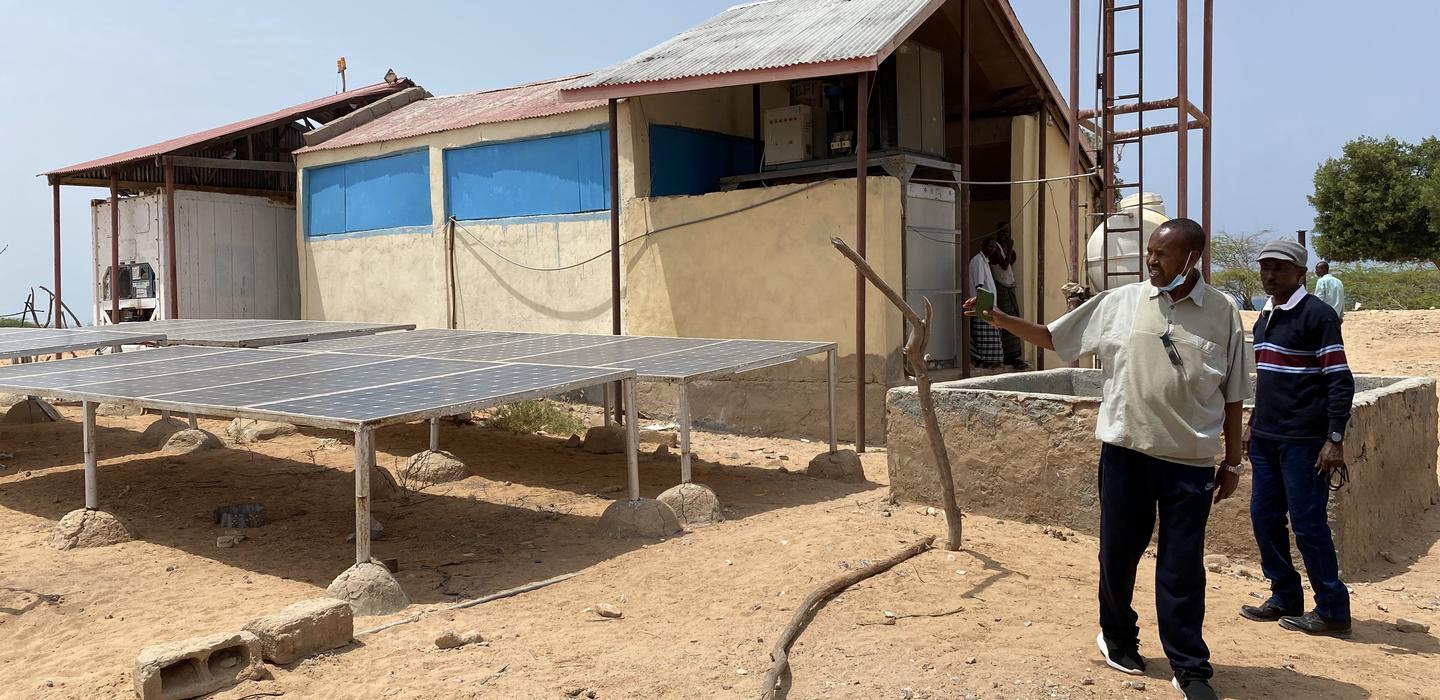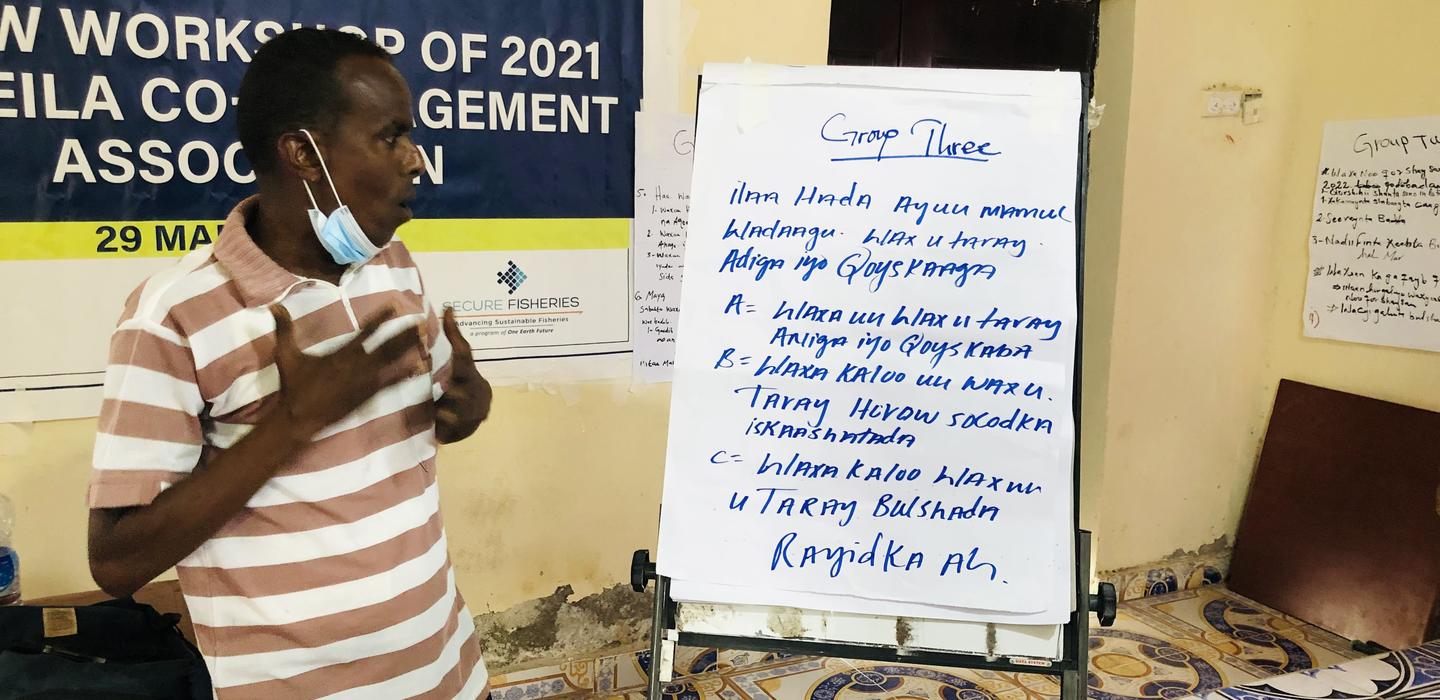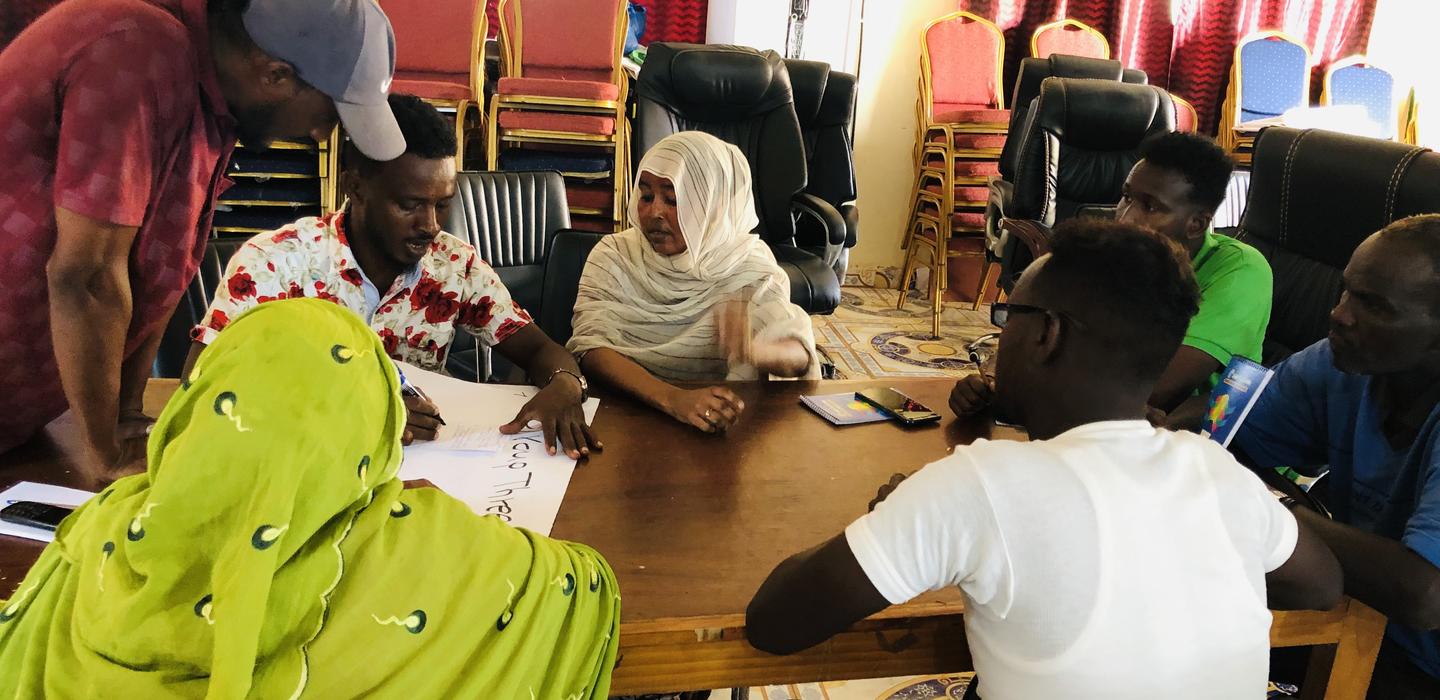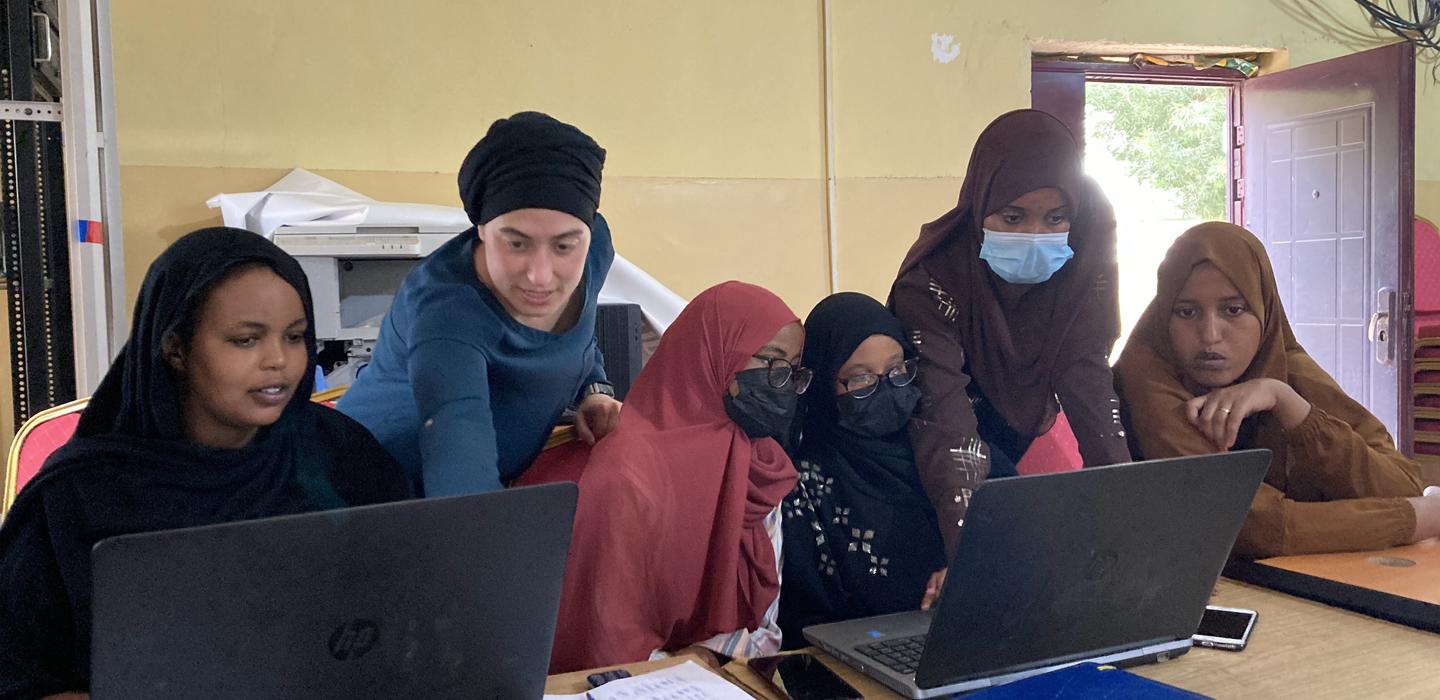Innovation
After studying the dynamics of fisheries-related conflict in the Somali region, Secure Fisheries noted the need for local resource governance; improved availability, access to, and use of data; and better communication between coastal communities and regional and national governments. Based on consultations with fishing communities, Secure Fisheries adapted fisheries cooperative management in the Somali context.
Now, having successfully facilitated the establishment of co-management associations (CMAs), including written agreements between the government and community representatives, Secure Fisheries is uniquely positioned to scale this successful model across the Somali coast.
In 2021, CMAs were fully established in two major Somali coast fishing communities experiencing the highest volume and frequency of conflict, Zeila and Bander Beyla. OEF’s goals for establishing governance systems to facilitate peace—and the resulting food security and prosperity—in the region through the Secure Fisheries program, involved, at its core, facilitating a partnership between the government and the community to build mutual trust. The new governance structure ushered in by the CMAs has resulted in fisheries management practices that will promote sustainability. They also provide a critical platform for members of the communities to express their opinions and influence fisheries management. Government members and fishers are brought together through co-management training, and technical and material support is provided to CMAs. Strategic planning is also developed in partnership with the CMAs.
For the first time, these associations have built a vision and plan for their communities over the coming years and have strategies for what to do and when to do it.
Impact
- The CMAs established by Secure Fisheries resolved 7 of 10 significant community fisheries conflicts that they adjudicated.
- The program catalyzed and trained community committees on conflict management skills, introducing them to conflict identification and solutions within the modalities of the CMA Conflict Management Committee.
- Secure Fisheries established a nationwide system of fishery catch data collection along the Somali coast with fishery officers from the ministries to inform federal and FMS-level fisheries policy and management, which also helps attract investors who need baseline data to guide decision-making.
- Secure Fisheries supported capacity-building by providing comprehensive training for ministry staff in how to collect catch data using a standardized protocol.
- The program secured a $50k funding commitment from the Global Food Cold Chain Council for improvements to the solar-powered refrigerator Secure Fisheries installed in 2020, which now generates higher income from inland markets.
- A relationship cultivated with Carrier Global and the Global Food Cold Chain Council led to Secure Fisheries headlining the annual Cold Chain Symposium to showcase the long-term potential Somali fisheries would have when provided with access to green energy and cold chain infrastructure.
- Our efforts have raised awareness within our global stakeholder network about the importance of fisheries conflict and the role of illegal, unregulated, and unreported fishing in perpetuating the problem. Stakeholders including the World Wildlife Fund, the Royal United Services Institute, and the Associated Press contacted us for our expertise on the issue, and our research on fisheries conflict was published in the peer-reviewed Journal for Peace Research, a top-tier political science journal.
- The United Nations Environment Programme selected the Secure Fisheries team to conduct a foresight study on climate change and maritime security on the Somali coast, raising revenue and strengthening our relationship with the UN.
- The program helped establish a Marine Protected Area (MPA) in Somaliland through the new CMA’s Fisheries Management Plan. As a result, the communities now understand the importance of protecting habitats and providing safe spaces for endangered and depleted species with an MPA.
- Secure Fisheries established an international consortium of partners including the UN Environment Programme, UN Food and Agriculture Organization, local and international NGOs, the region’s Ministry of the Environment and Climate Change and Ministry of Livestock and Fisheries Development, and the Zeila Co-Management Association.
- A partnership with Blue Ventures (Agatha Ogada) on fisheries co-management and MPA establishment created a pathway for their support to expand Secure Fisheries programming.
The program engaged with the UN Environment Programme for support and funding for the Zeila Fisheries Management Plan and to collaboratively explore maritime security under climate change in the Somali region. This will result in conflict training for fishing communities in Puntland and Jubaland and for government officials at the member-state and federal levels.
Testimonials
“I was one of the students from EAU able to join the Project Kalluun fish data collection in Bosaso Somalia. Before joining Project Kalluun, I was not aware of fish identification or fisheries management, but now I am the supervisor of the data collection students in Bosaso. The knowledge I gained from this project assisted me in writing a guidebook of Somali fishes and the Secure Fisheries Director, Dr. Sarah Glaser, helped me edit and publish the book.” —Project Kalluun student
Accurate and reliable data is the basis for the effective management of a country’s marine resources and because of the instability in Somalia over a period of decades, there’s been an acute lack of data of this nature, which makes [Secure Fisheries's] Project Badweyn all the more valuable.” —Dr. Sivakumar, City University of Mogadishu
“In data collection, it matters that we work together. In collaboration with Secure Fisheries, we have been able to collect data to understand the baselines of fisheries resources which helps us to understand the stocks, and the status of fisheries, and account for the biodiversity for protection. Project Kalluun allows us to work with students to collect data from landing sites. [Project Kalluun] exposes students to new skills. How can they talk to a fisherman? How can they collect the data? How can they measure and record? How can they be accountable for the data they have collected? And this exposes them to being a marine scientist. . . . The students are also given the opportunity to give presentations, which helps them gain confidence, share their experiences, and learn to enjoy science.” —Nina Wambiji, Kenya Marine and Fisheries Research Institute
